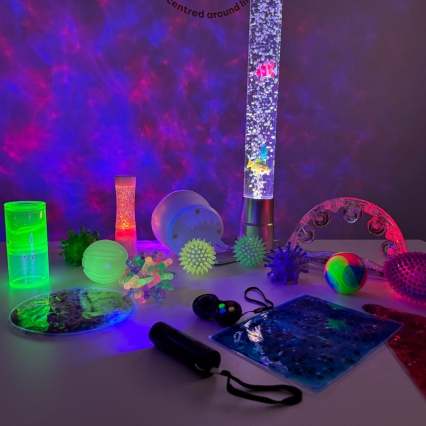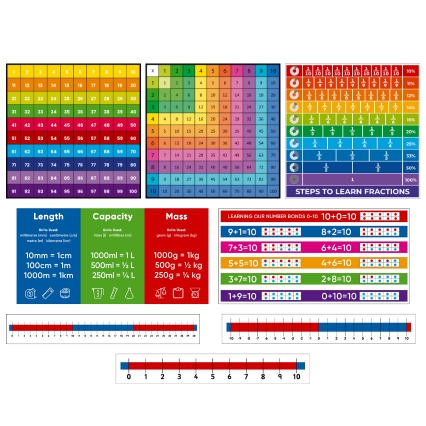We use cookies to make your experience better. Learn more
Benefit of Sensory Rooms for Adults with Learning Disabilities
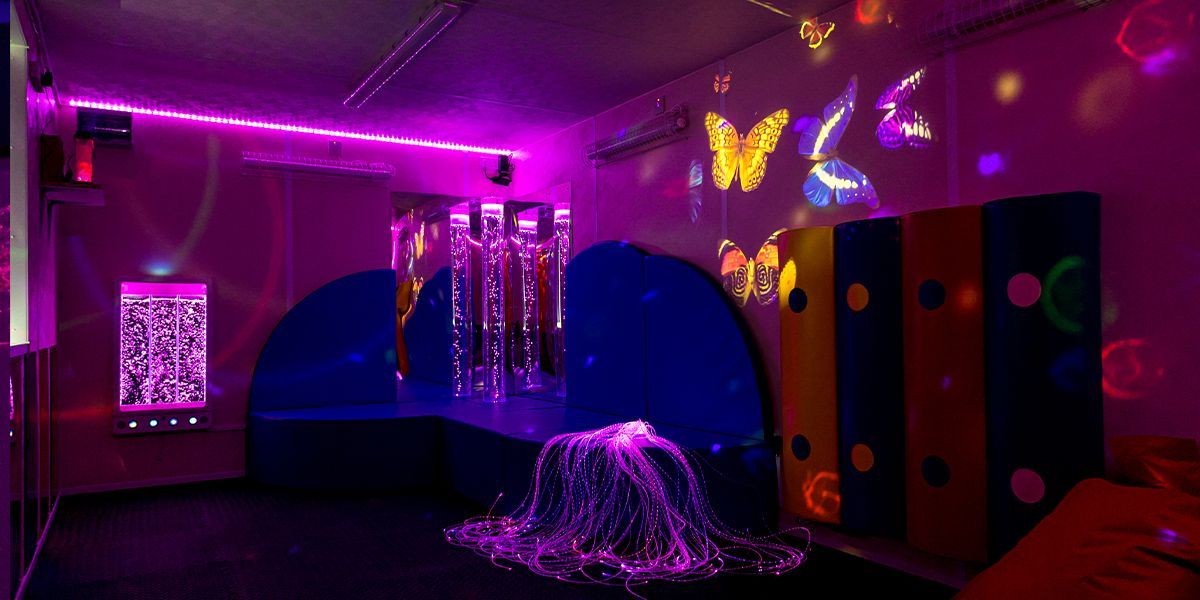
In recent years, there has been a growing awareness of the significance and advantages associated with establishing an inclusive environment for adults with learning disabilities. This heightened awareness is reflected in the increasing use of multi-sensory rooms, originally designed for children, to cater to the specific needs and requirements of adults.
These sensory rooms, known for their adaptability in design and diverse range of settings, have evolved to have a positive impact on the lives of adults with mild to complex learning disabilities. Their versatility allows for the creation of environments that encourage learning, relaxation, stimulation, and overall improvement in well-being.
At Creative Activity Group, we've witnessed an increase in demand for adult multi-sensory environments. This trend reflects a growing recognition of the importance of tailoring support to meet the unique needs and preferences of each individual, highlighting the value of fostering inclusive spaces for adults with learning disabilities.
In this blog we take a deeper look at how beneficial sensory rooms can be for adults with learning disabilities:
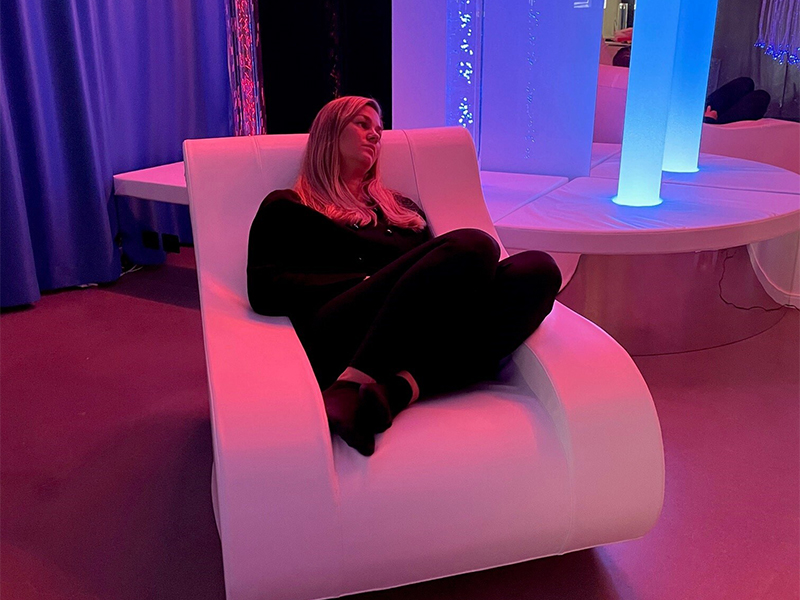
Tailored Sensory Stimulation
Sensory rooms aim to provide a personalised sensory experience in a controlled setting where stimuli, including lights, textures, and aromas, can be customised to suit the specific needs of each user. This individualised approach holds special significance for adults with learning disabilities who may encounter challenges related to sensory overload or processing large amounts of information. Recent research has demonstrated the positive effects that sensory rooms can have on adults.
Stress Reduction and Relaxation
One of the main benefits of a sensory room for adults with learning disabilities is their ability to facilitate stress reduction and aid relaxation. Sensory rooms provide a safe and relaxing environment where can refocus on given tasks and and express their emotions in a controlled way. The calming effects of sensory elements, such as auditory, tactile and aroma, can help r and reduce the possibilities of a sensory burnout or exhaustion, allowing individuals to better cope with the stresses of daily life. For example, we recently installed a sensory room in South West Acute Hospital in the emergency department, which has been of great benefit to all users, making what would normally be an overwhelming and challenging visit into a more restful and comfortable visit.
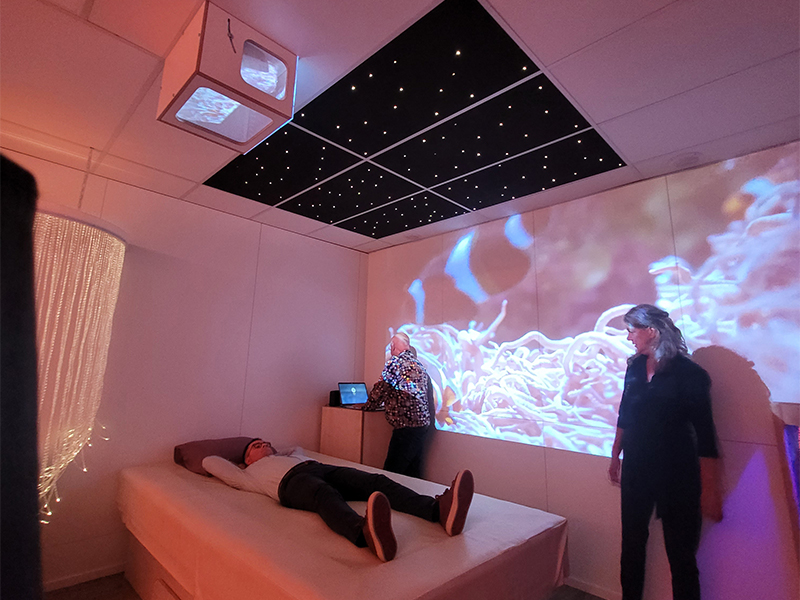
Enhanced Focus and Attention
Some adults with learning disabilities can find it challenging to maintain focus and attention in a traditional learning or work environment. Sensory rooms are equipped with a wide range of sensory sensory products chosen that can help improve concentration, attention span and spatial awareness. These multi-sensory experiences help stimulate the brain, promoting cognitive engagement and this can have a positive impact on the day-to-day lives of adults with learning disabilities and those around them.
The Valley Centre
Improved Emotional Regulation
Learning disabilities in individuals adults can sometimes be accompanied by challenges within emotional regulation. Sensory rooms function as a therapeutic space individuals can develop an effective coping mechanisms to help deal with stressful and overwhelming situations. A recent sensory room installation by the Creative Activity team at The Valley Centre has proved extremely beneficial to the adults who visit the centre. Adults attending the centre can use the sensory room to escape the daily hustle and bustle of the centre and enjoy a tailored environment that supports their sensory requirements at that time. By providing a structured environment where individuals can explore and manage their different emotions through sensory experiences, multi-sensory environments contribute to improved emotional well-being.
Social Interaction Opportunities
Sensory rooms are not only individual sanctuaries for calm and relaxation but can also serve as a communal space for group activities depending on their size and design. For adults with learning disabilities, socialising can be a frightening and unnerving experience. Multi-sensory rooms and its range of sensory equipment can provide a tranquill space where they can share their experiences, help build a sense of community and mutual understanding. These shared sensory activities can help improve teamwork, communication, and the development of social skills in a supportive and inclusive environment.
The conclusion of sensory rooms for adults with learning disabilities go beyond conventional approaches to education and therapy by acknowledging and addressing the diverse sensory needs of individuals and providing the ability to provide tailored support.
To view our case studies of multi-sensory room design and installations on our case study page here. If you are interested in designing a multi-sensory room to support adults with learning disabilities, please get in touch with our team today on sales@creative-activity

